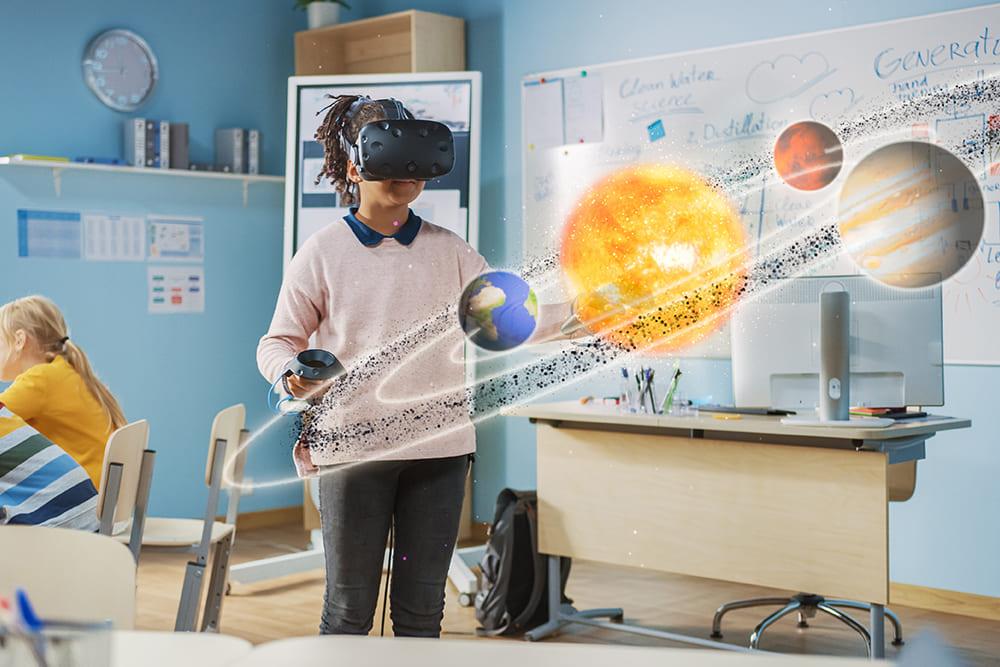Top 7 Cost-Effective VR solutions for Schools: Affordable Options for Engaging Education
Virtual reality (VR) is rapidly revolutionizing educational environments, making lessons more immersive and interactive than ever before. However, the perceived high cost of VR technology can be a barrier, especially for budget-conscious schools. Fortunately, there are now plenty of cost-effective VR solutions for schools that enable administrators and teachers to bring digital learning to life—without breaking the bank.
In this guide, we explore the top 7 affordable VR solutions for classrooms, highlighting their features, benefits, and why they stand out for engaging education. weather your school is just beginning its VR journey or looking to expand its existing setup, you’ll find options to suit various needs and budgets.
Benefits of VR in Education
- Immersive Learning: VR provides interactive, 3D environments that help students better retain knowledge.
- Engagement: Students are more attentive and involved in VR-based activities.
- Accessibility: Brings global field trips, science labs, and historical sites into the classroom instantly.
- Collaboration: Many VR platforms offer multiplayer modes promoting teamwork and communication.
- Inclusivity: VR can engage various learning styles and support students with special educational needs.
Top 7 Cost-Effective VR Solutions for Schools
Below are our picks for the best affordable virtual reality platforms and kits, taking into account pricing, ease of use, educational resources, and device compatibility.
-
Google Expeditions (Now Integrated into google Arts & Culture)
Investment: Free app,compatible with low-cost VR viewers (e.g., Cardboard).
Google Expeditions, now part of google Arts & Culture VR, remains a top contender for classrooms worldwide. The platform offers over 900+ immersive excursions,allowing students to journey from the Amazon Rainforest to the International Space Station.
- works seamlessly with affordable Google Cardboard viewers.
- No expensive hardware is required—compatible with most smartphones.
- Teacher-led tours with comprehensive guides and questions.
-
ClassVR
Investment: ~$500 per headset with class kits and teacher controls available.
Designed specifically for education, ClassVR offers an all-in-one solution with pre-loaded content that covers science, history, geography, and more.
- Robust classroom management features for teachers.
- Wireless operation and user-friendly interface.
- Educational content aligned with curricula.
- bulk discounts and easy classroom setup.
-
Oculus Quest 2 (Meta Quest 2)
Investment: Starting at $299 per headset.
The Oculus Quest 2 (now branded as Meta Quest 2) is a powerful standalone VR device suited for secondary schools and high-engagement projects.
- Large library of interactive STEM and arts educational titles.
- no need for a PC or external sensors.
- supports cross-classroom collaboration through apps like ENGAGE and Wander.
- Durable and portable for shared classroom use.
-
Merge EDU and Merge Cube
Investment: Merge Cube $20; Merge Headset ~$50; platform subscription at various rates.
Merge EDU offers a unique blend of tactile and digital learning. The Merge Cube transforms in students’ hands into 3D models viewable with affordable Merge headsets or even smartphones.
- Hands-on AR/VR experiences across science and math topics.
- Interactive simulations and digital object manipulation.
- Affordable for individual or group use.
-
Veative edupro VR Kits
Investment: Entry-level kits start from ~$300 per device.
Veative specializes in curriculum-aligned STEM modules for K-12, offering complete VR headsets with controller support and classroom management.
- Over 550 immersive STEM simulations.
- Multi-language support and assessment tools.
- Analytics dashboard for teachers to monitor progress.
-
Google Cardboard
Investment: $10-$20 per viewer.
While simple, Google Cardboard can transform any classroom smartphone into a basic VR viewer.
- Ultra-low-cost, easily scalable solution.
- Wide range of free and low-cost VR apps.
- Perfect for introductory VR experiences and STEM demos.
-
Alcove VR
Investment: Free app, compatible with Oculus Quest and other mobile VR devices.
This versatile app is ideal for introducing collaborative VR experiences and cross-generational learning.
- Virtual field trips and family sharing features.
- Supports art exploration, science lessons, and wellness tutorials.
- User-friendly interface suitable for primary and secondary levels.
Tips for Implementing Cost-Effective VR in Schools
- Start Small: Pilot one or two headsets before investing heavily; gather student and teacher feedback.
- Utilize Existing Smartphones: Many solutions work with just a smartphone and a basic viewer, minimizing new device costs.
- Leverage Free Content: Platforms like Google Arts & Culture and educational YouTube VR videos offer thousands of free experiences.
- apply for Grants: Many educational grants and local STEM funds now cover technology purchases, including VR.
- Encourage Sharing: Rotate devices between classes and subjects for maximum impact.
case Study: VR in the Classroom – Firsthand Success Story
“After introducing Google Expeditions and ClassVR into our fifth grade classes, even students struggling with traditional methods became excited about learning. Attendance and participation improved, and teachers reported higher retention when teaching complex topics like ancient civilizations and molecular structures.” — Ms. Ellie Norman, Technology Specialist, northside Elementary
Ms. Norman’s school started with five Google Cardboard kits and two ClassVR headsets. By sharing these between classes and supplementing them with free VR content, they changed the learning dynamic without exceeding their annual tech budget.
Conclusion: Transforming Learning with Affordable VR
Virtual reality is no longer an inaccessible luxury for schools. The cost-effective VR solutions highlighted above allow educators to enhance interactive learning,curiosity,and collaboration for students at all grade levels—even on limited budgets.
Embracing affordable VR options means enabling both teachers and students to explore new worlds, conduct safe science experiments, and interact with curriculum topics in ways never before possible. Start small,utilize existing technology,and watch your schoolS educational engagement soar!
Ready to take your classroom to the next level? Consider trying one of these cost-effective VR solutions for schools this semester and experience the difference immersive education can make.

